Leading from Within: How ALX is Creating a New Generation of Problem Solvers in Ethiopia
- 09 Feb 2023
- 10 min read
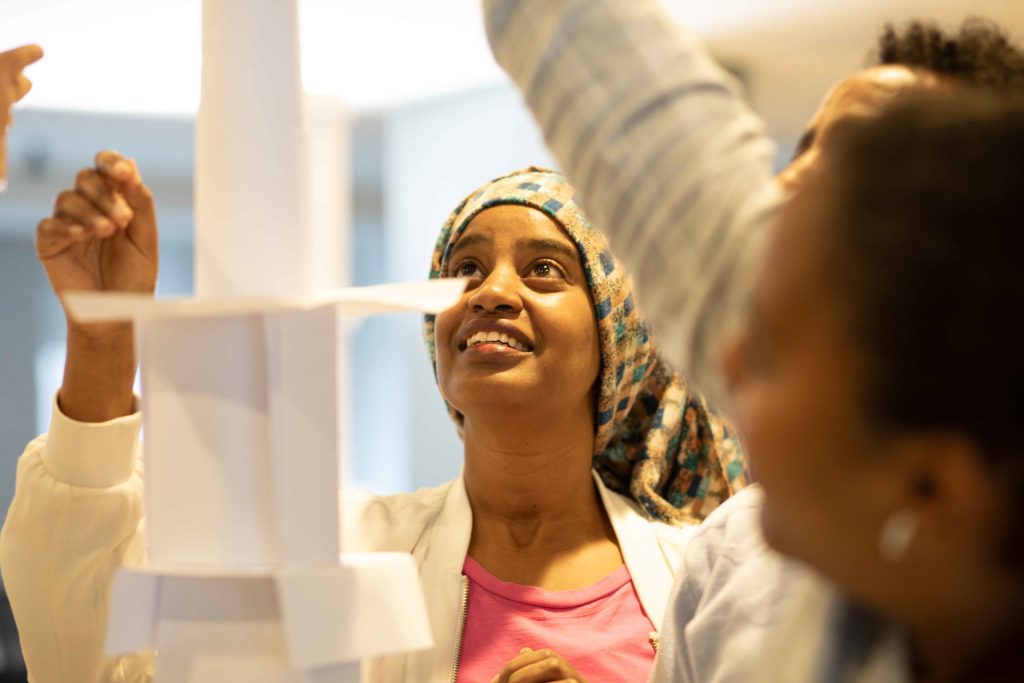
How does a young man from rural Ethiopia, raised in poverty, become the Chief Technology Officer of a new startup? It is when talent meets opportunity, access and exposure – three elements that ALX is extending to a wave of young people across Africa.
While the rest of the world is rapidly evolving towards highly digitised societies, Africa has an open road ahead for how it wants to shape the future of the continent. With 70% of the African population under the age of thirty, the future is being crafted as we speak. ALX has dared to step outside of the status quo of aid dependency to solve local problems. Instead, it is owning Africa’s setbacks by looking inwards and creating a generation of leaders and problem solvers.
Activating Africa’s youth with the skills necessary to compete in today’s growing digital society is necessary to propel the continent into a prosperous future. ALX is trailblazing this transformation by developing skills for the fourth industrial revolution, such as software engineering, data science and cloud development, and through The ROOM – its community of top tech talent.
Humans, unlike any other species, can innovate and consciously modify the environment in which we live. We have evolved from hunting and gathering societies to postindustrial societies, more commonly known as the information technology age. This has shaped, and continues to reshape, how we do business, consume news, food, music, etc. Production is increasingly becoming highly automated and more digitised, changing the type of workforce in demand. Today’s digital transformation, or the fourth industrial revolution, is demanding digital, tech and analytics skills. ALX in Ethiopia is training and equipping young Ethiopians with these in-demand skills of the future.
Some of our recent graduates share the impact of their training with ALX, and what it means to be part of The ROOM’s lifelong talent community, below.
The Self-taught Computer Whizz | Dawit Hagos’ Story
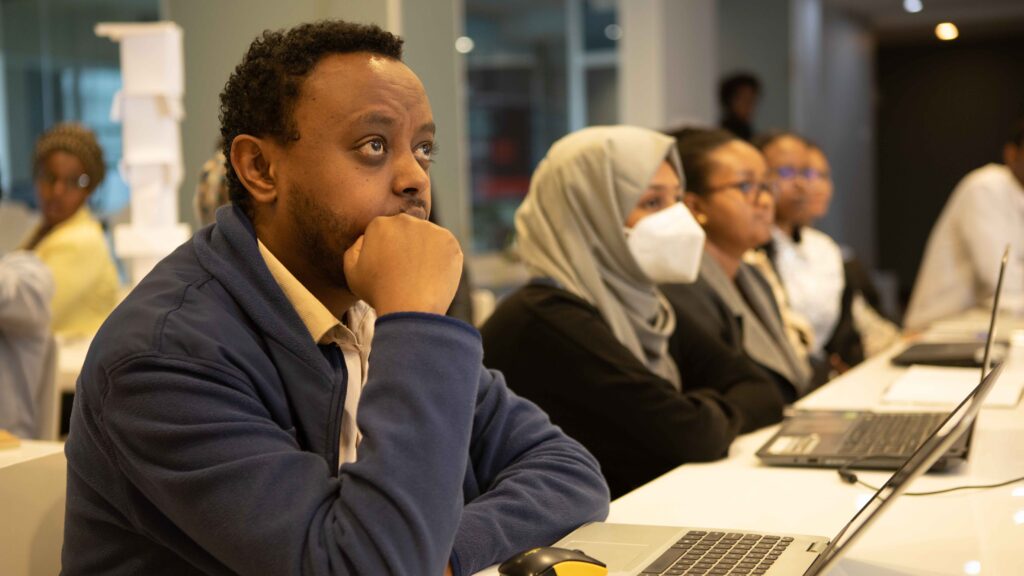
Dawit Hagos is a 28-year-old Software Engineer in the bustling city of Addis Ababa, where he is the CTO of a booming SaaS company. Born into humble and rocky beginnings in rural Desse, Dawit’s first exposure to computers was at the local photocopy and printing shop. There, he would play with the computers, study the commands, and make games out of troubleshooting until eventually, at 12 years old, the shop owner was calling on him to fix the computers when issues would arise. One day, an NGO that allowed people in the area to use computers connected to the internet for two hours per day came into town. That was the first time Dawit explored the world wide web from the hillsides of Desse.
“In 10th grade I took my first formal IT class, but funny enough, I hated it! We were learning things at a very slow pace. For instance, we would learn how to ‘copy’ one day, then how to ‘paste’ the following day. There were about 3 to 4 of us sharing one computer; I wasn’t challenged at all. I was really into spy movies where computer gurus would sit behind computers coding or decoding something, and often thought to myself, ‘That’s exactly what I want to do.’ I was fascinated by how they could understand the computer’s language and how they had the power to command the computer to do as they wished. To me, that was magical,” he said.
Years down the line, Dawit ended up moving to the capital, Addis Ababa, and had a series of jobs before landing a job as a high school IT teacher. “I would often go outside of the curriculum and try to get the students into software engineering, and not just cutting or bolding text. Eventually, I established an extracurricular club called GreenCode, where I taught the students programming. I wanted to teach them about modern technology and equip them with what they would need when they went out into the real world for employment or to work on projects of their own,” he explained.
“Some of the greatest entrepreneurs in the world are sitting here on this continent and the only thing they need is someone to believe in them.”
– Fred Swaniker
As a self-taught IT professional, Dawit got his first laptop at the age of 22. He would go to internet cafes to fetch and download instrumental PDFs and study them offline. After he left his teaching job, he took a series of contract jobs developing several platforms, landing pages etc. and teaching himself along the way. When he learned about the ALX SE programme in a Telegram advertisement a friend shared with him, he harnessed the opportunity to get formal training, and has been climbing the ladder of success ever since.
Dawit is now the CTO of BeU Delivery, the fastest food delivery service in the country with an average of 60,000+ orders per month, creating over 300 jobs thus far. Asked about his thoughts on this impressive achievement, he simply replied: “I feel like I am just getting started." He has ambitions of starting his own company that focuses on solving societal problems.
“Some of the greatest entrepreneurs in the world are sitting here on this continent and the only thing they need is someone to believe in them,” said Fred Swaniker, founder of ALX and The ROOM. Dawit is one of many young people who combined their talent and drive with the opportunity, access and exposure ALX provided to untap their potential and work towards solving problems in society.
Software Engineering: The Art of Problem Solving | Yosef Ayele’s Story
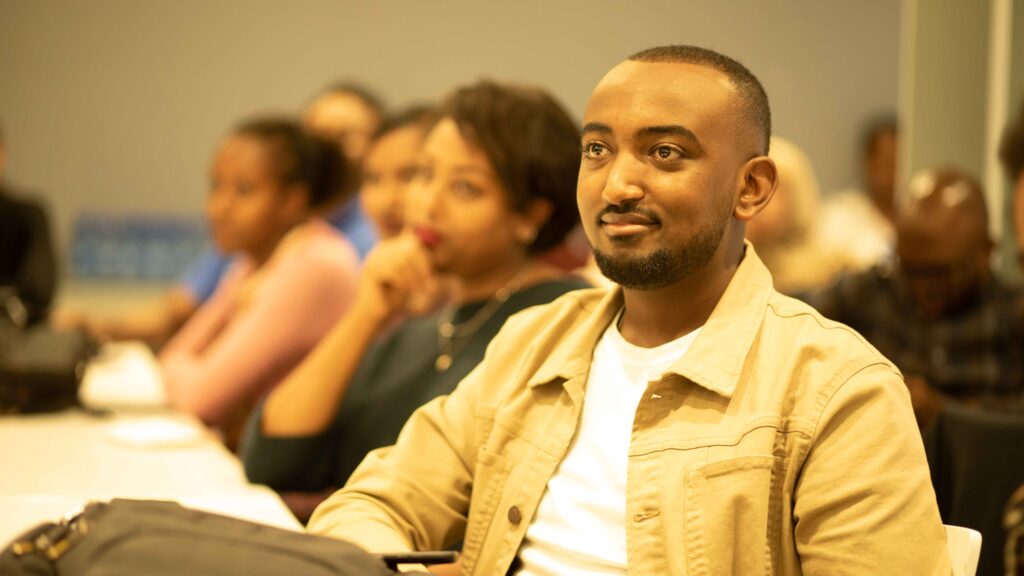
Yosef Ayele is another Software Engineer who catapulted himself into an upward trajectory by pairing his own motivation with the tools that the SE programme at ALX equipped him with. “Software engineering is more of a mentality than it is coding,” said Yosef. “Problem solving skills are more important than the ability to purely write code. ALX created a habit loop of researching, learning, then applying” he shared. In that loop, debugging is an area that the SE programme prioritised.
“Coding isn’t an art that flows organically. Problems are bound to occur, and we should expect them to. Facing a new problem is a good thing because you’re both learning something new as well as learning a new solution. It would take me all day to understand what one error message meant, but I learned several new things in that process. Then I started building a log of errors which helped me solve issues more quickly in the future” explained Yosef.
The SE programme is a project-based course that incorporates a minimum of two group projects per sprint. With the groups consisting of students across Africa, it has allowed for people in different countries to build connections across boundaries, share their experiences, and gain exposure to other country’s challenges and successes. “That, combined with the deadline-driven projects, created a time crunch mentality that pushed us to code at a high-level, international standard. Learning to write code is one thing, but writing code that is readable by any software engineer anywhere in the world for the purpose of maintenance and building is another thing entirely. Engineers who can do that are the ones you want on your team,” explained Yosef.
"Problem solving skills are more important than the ability to purely write code. ALX created a habit loop of researching, learning, then applying... That, combined with the deadline-driven projects, created a time crunch mentality that pushed us to code at a high-level, international standard."
– Yosef Ayele
The ALX SE programme strives to blur the barriers between academic life and work life. When Yosef began the SE programme, he was working as an intern with the Orange Digital Center in the ICT park in Addis Ababa. He was tasked with building a mobile application that transcribes Amharic voice into text. “I had to dig through lots of documents to understand how to tackle this project with my partner. I handled the language processing and modelling side of things while she handled the android interface part,” he explained. To develop the language processing and modelling, he used the same language that he was learning in the ALX programme – the C programme language. “I was learning through ALX and applying what I was learning at my internship. We successfully built the application and submitted the project to the Ministry of Innovation and Technology (MiNT)”.
In the future, Yosef plans to start his own fintech company. “I don’t want us to be a cash-based society any longer. As long as you have a smartphone, you should be able to move money around. I don’t even think we need to go through spending unnecessary resources and capital on the debit card system. We can remove the cost of producing cards and scanning machinery and have 100% digital payments,” said Yosef.
Practice Made Her Perfect | Kalkidan Berta’s Story
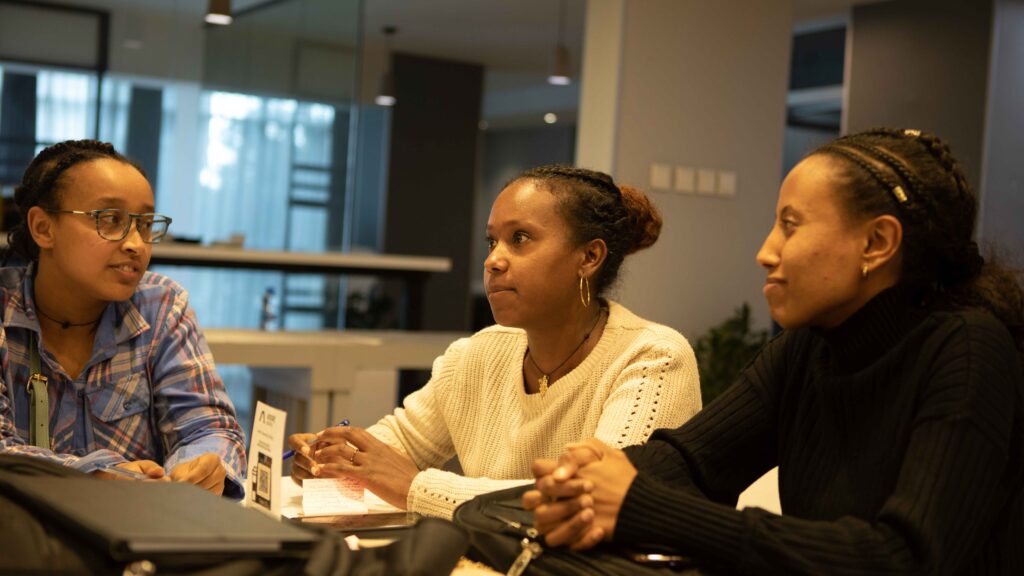
Kalkidan Berta is another ALX SE programme graduate who elevated her career path. “ALX definitely enhanced my software engineering skills by providing structure around learning software development methods and providing ample practice to thoroughly absorb the modules,” she said. “I studied Computer Science in college, and there wasn’t much time in between learning the modules and being tested on them. What I love about ALX is that we are given several tasks to practise and apply the modules,” she explained.
“ALX definitely enhanced my software engineering skills by providing structure around learning software development methods and providing ample practice to thoroughly absorb the modules.”
– Kalkidan Berta
When Kalkidan began the SE programme, she was working in the job creation department of the local municipality doing basic data entry, but yearning to do more, earn more, and apply more of herself. Today, she’s a software developer for a growing digital banking platform in a positive and challenging work environment with dreams of starting her own SaaS company one day. She credits ALX for encouraging her to set a goal and go after it relentlessly. “Anyone can apply to this programme. Seventy hours a week may seem like a lot, but while you’re doing the projects, time flies by. If you’re someone who likes solving problems, then this is a fun programme to be in, and I highly recommend it!” said Kalkidan.
“Never doubt that a small group of thoughtful committed leaders can change the world; indeed, it’s the only thing that ever will,” said American anthropologist Margaret Mead. With all of the untapped talent that lies in Ethiopia and throughout the African continent, ALX is knocking down barriers in building the future of talent, cultivating a generation of young people who are harnessing the opportunities of the digital age and creating ripple effects that will drive prosperity for many generations to come.
ALX is at the forefront of equipping young professionals in Ethiopia and across the African continent with the most in-demand skills that will power the future. Its world-class tech training programmes enable individuals to future-proof their careers and become agile digital leaders for the 21st century. Find out more at www.alxethiopia.com.
 Ghana
Ghana 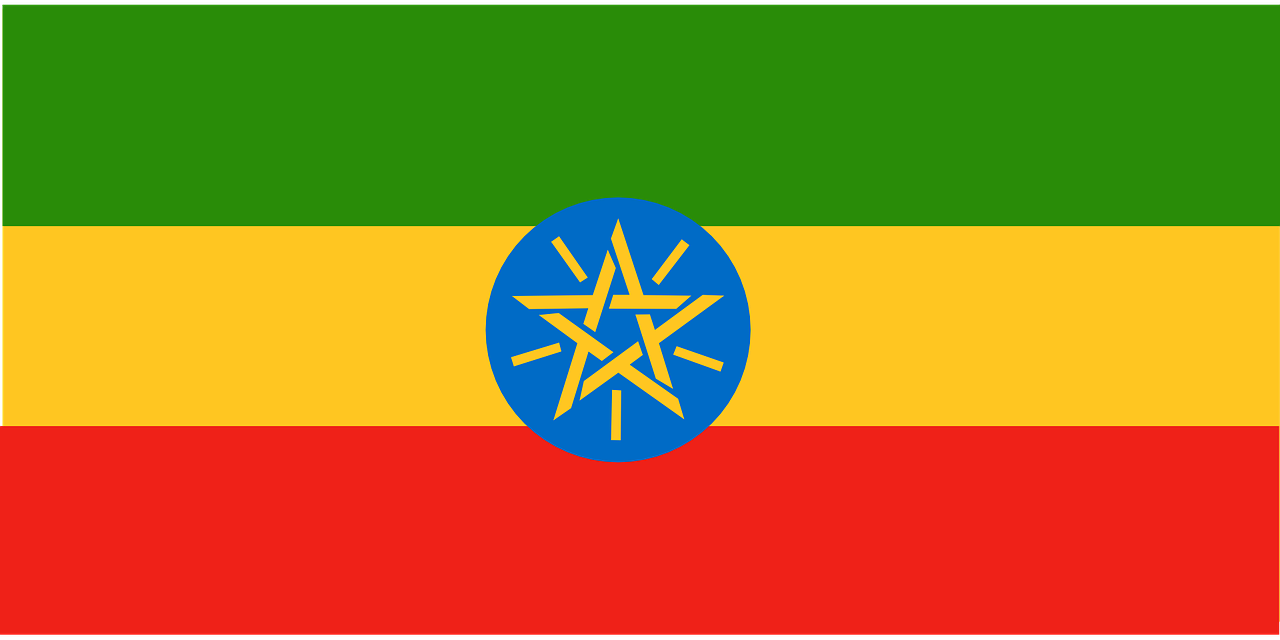 Ethiopia
Ethiopia  Egypt
Egypt  Morocco
Morocco  South Africa
South Africa  Rwanda
Rwanda  Nigeria
Nigeria  Kenya
Kenya 